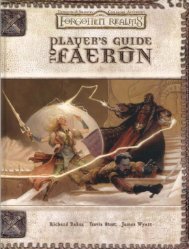CGR2 - The Complete Gladiator's Handbook
CGR2 - The Complete Gladiator's Handbook
CGR2 - The Complete Gladiator's Handbook
You also want an ePaper? Increase the reach of your titles
YUMPU automatically turns print PDFs into web optimized ePapers that Google loves.
Overbear: When the only advantage the attackers trying to pin a weapon, the character suffers the same<br />
have is numbers, the most effective tactic is often to sim- penalties as under the Barehanded penalty (-2 AC until<br />
ply swarm the defender, to bring it down and pin it where his next attack, and an additional -2 attack penalty).<br />
it is at the mercy of the attackers. <strong>The</strong> modifiers are as fol- Pull/Trip: A barehanded character cannot Pull/Trip<br />
lows: Size difference is +/-4 if the defender is smaller or any size Large or larger creature, but can try against other<br />
larger, respectively. <strong>The</strong>re is a -2 penalty for each leg the creatures with no penalty to his attack.<br />
defender has beyond 2. Finally, each extra attacker gives a Sap: <strong>The</strong> Barehanded Sap follows exactly the same<br />
bonus of +1 to the attack roll. <strong>The</strong> attack roll uses the rules as the weapon-in-hand Sap, with the same chance<br />
THAC0 of the weakest member; a successful attack for a knockout (5% per point of damage).<br />
means the character has been overborne. Further success- Shield Maneuvers: Because a barehanded character<br />
ful overbearing attacks each round pin the creature. <strong>The</strong> has by definition empty hands, he cannot perform these<br />
pin lasts until the attackers fail to make a successful Overbearing<br />
attack, or when the attacker breaks free of the pin<br />
maneuvers.<br />
(see “Pin” above). Tactics<br />
Barehanded Maneuvers<br />
Called Shots: Punching, Martial Arts, and Wrestling are<br />
all called shots and are described in the “Martial Arts”<br />
section later in the chapter.<br />
Disarm: <strong>The</strong> Barehanded Disarm gives the unarmed<br />
gladiator even more disadvantages. First, his AC decreases<br />
by two places (for example, from 8 to 10) because he has<br />
to expose himself to reach for his enemy’s weapon, and his<br />
attack roll is at an additional -4 (for a total of -8) to hit. If<br />
successful, he wrenches the weapon from his foe’s grasp.<br />
Grab: <strong>The</strong> Grab is a naturally a barehanded move, so<br />
suffers no additional penalty for an emptyhanded<br />
attacker.<br />
Hold Attack: <strong>The</strong>re is no penalty for a barehanded<br />
fighter to hold his attack.<br />
Parry: <strong>The</strong> Barehanded Parry, like the Barehanded<br />
Disarm, penalizes the character with a -2 AC modifier,<br />
which lasts until the character’s next attack. When carrying<br />
out the Parry, the fighter suffers an additional -2<br />
attack penalty, because he must get close enough to get his<br />
hand in front of his enemy’s weapon hand.<br />
Pin: <strong>The</strong> Barehanded Pin against another barehanded<br />
character is more properly a Wrestling maneuver. When<br />
45<br />
A good gladiator always has strategies in mind when<br />
attacking a foe. Trained gladiators almost never go into<br />
combat simply to bash away at the opponent until one or<br />
the other drops dead. <strong>The</strong> best gladiators plan in advance,<br />
using the first few moments of combat to draw the opponent<br />
out and appraise him for weaknesses. When the<br />
gladiator has judged his opponent well enough, he formulates<br />
a strategy to force his antagonist to make a mistake.<br />
And when his opponent slips up, the gladiator is always<br />
there to take advantage of it.<br />
If, after the assessment, the gladiator determines his foe<br />
to be weaker, he has no problem wading in to finish off his<br />
opponent. However, few gladiators take this option, as<br />
more experienced gladiators have been known to feign<br />
weakness or inexperience to draw in the bold and brash.<br />
This, in turn, has caused the newer gladiators to fear those<br />
who seem to be weak, and they therefore do not attack the<br />
weak-seeming ones outright. This serves the dual purpose<br />
of teaching new gladiators to assess a foe, and luring the<br />
less intelligent to their deaths. <strong>The</strong> mind games in the arenas<br />
can be nearly as subtle as those the templars use on<br />
one another, and often as entertaining as the sheer brutality<br />
of the sport.<br />
Despite their great size and physical prowess, it is only





